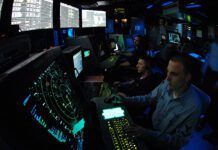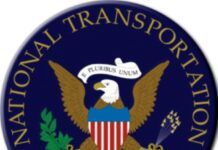I’ve been doing some instrument instruction with a young pilot who’s set on working his way through the ratings to an eventual professional flying career, probably in the airlines. I’m occasionally asked what’s the best way to do this, but if I’m honest, I have to admit the real question I weigh is whether to do it. That doesn’t necessarily relate to the nature of the job itself.
Not that long ago, maybe 20 years, the usual path was to earn the private, instrument and commercial, build some time by instructing and then move on to a charter or freight job. Or do a stint in the military. From there, the choices bifurcate again, offering the world of corporate flying or the scheduled carriers. It still works that way, but there’s less flight training going on and thus fewer opportunities in that field. In the military, the demand is for drone pilots, not butts in cockpits.
We keep reading about an impending pilot shortage and while I think there’s truth to that, what I’m not sure of is how deep the demand will be and if it will be sufficient to put upward pressure on salaries, at least at the regional level where I couldn’t, in good conscience, advise anyone to seek employment.
But there’s a longer term trend I think anyone contemplating a flying career has to consider: the inevitable impact of automation and autonomous flight. A young person starting a flying career today at, say, 24 years old, will have a 40-year haul in the workforce. Four decades takes us to 2054, by which time the state of automated flight won’t look anything like it does now. There’s a veritable tsunami of demand coupled with rapidly advancing technology that promises a rapid evolution if not a revolution in autonomous or remote-controlled flight. Last year, in the U.K., BAE conducted its first conceptually unmanned flight of a Jetstream 31 from Britain to Scotland. It’s experimental, of course, but the project continues.
Think where it’s likely to be in 10 or 20 years and ask yourself if you think autonomous passenger flights will never happen. I think those who are skeptical tend to judge the question emotionally through the prism of current passengers born in an age where pilots were vested with almost God-like skills and authority. The next generation of ticket buyers might not feel that way. In fact, even as one of those dinosaurs brought up to believe aviation meant pilots in the cockpit, I’m not certain where I stand. I can’t say I wouldn’t get on a pilotless airliner tomorrow, if one taxied up to the jetway.
So, not to be a buzz kill about the thrill and romance of being a steely-eyed aviator, but anyone looking into the distance should think about this. However much you’ll invest in obtaining the training and ratings–$50,000 or $100,000, or whatever-what’s the shelf life of the skill likely to be? Pilots won’t get booted from the cockpit overnight or even over a decade, probably. But just as the military has replaced piloted flight with remote flight faster than many anticipated, so might commercial flight go the same way, spirited along by advances in processor power and remote datalinking, further fueled by economics that will make that technology cheaper.First, it will be with freight, but inevitably, passengers will be flown in remotely piloted or autonomous aircraft.
After I wrote this initially, I found this interesting sitethat features open-ended bets on the future of technology. The bet–which is a pro and con about pilotless airliners–has then-Google CEO Eric Schmidt putting a longer-than-50-years timeline on pilotless commercial flight, while Microsoft’s Craig Mundie sees it happening by 2030. That’s just 16 years away and a bit too soon, I think. Part of Schmidt’s argument for more than 50 years–after 2064–is that it will take the FAA that long to certify such technology. That’s an interesting and insightful comment with some merit coming from a commerical pilot who flies his own Gulfstream V. But it also ignores this fact: In the face of overwhelming economic and political pressure, the FAA caves. It happened with GPS and you’re seeing it happen with UAS regulation. The likes of Boeing and Lockheed Martin bring big guns to the political table, as do their customers. The FAA will resist, to a point.
I wouldn’t say any of this argues against a professional pilot career. There are still interesting times ahead for pilots sitting in cockpits. But if I were in it for the long haul, I’d have a backup in mind-either allied skills related to autonomous flight or a degree in something that isn’t aviation. This is nothing new. I know airline pilots who are engineers, accountants, business administrators, IT experts or marketers. The standing theory was that this provided a safety net against the unavoidable ups and downs of the airline biz. That part hasn’t changed. Autonomous technology might make it a little more volatile, a little more unpredictable and maybe a little scarier. It only makes sense to have a way to join ’em, rather than trying to beat ’em, which may be futile.
Someday soon, we’ll all be reading a news story that will provoke this reaction: “Hey, you mean they’re already flying these things without pilots?”
Join the conversation.
Read others’ comments and add your own.


































